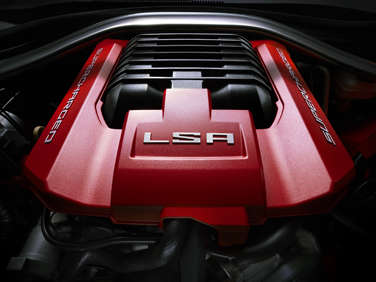Recent Articles
Popular Makes
Body Types
Synthetic Oil vs Regular Oil

Synthetic oils have been around since the Second World War where apparently the Germans used it when conventional oil could not perform in the freezing weather conditions. They are supposed to minimize the engine wear and improve gas mileage while increasing power. Synthetic oils have a higher heat resistance than mineral-based oils. This synthetic oil has a chemical compound composed of molecules that all have the same weight and shape. This oil doesn't start to vaporize until it's reached a temperature greater than 600 degrees F. Conventional oil will vaporize around 350 degrees F. What this means to your engine is: • Added stability as your engine won't burn up as much oil because the oil is more resistant to the heat. • Less sludge and less varnish deposits remaining in the engine. • Better lubricity because the synthetic oil polymers slide easily over each other. By reducing friction, you improve horsepower and torque while lessening engine wear. • Better film strength – this is the resistance of oil molecules from separating under pressure. If you think about two metals being pressed together, with oil between them to stop them from grinding, you want that oil to stay there. Conventional mineral oils will push away from each other. As synthetic oils don't shear as easily, they can maintain a higher film strength, which prevents wear under difficult and extreme operating conditions.
The main purpose of adding oil to the engine is for lubrication during start-up. This is the most critical time to have lubrication. If you use mineral oils, there is a small amount of wear every time you start up your engine. A little bit once or twice doesn't seem like it should be a problem, but over time, they add up and can result in increased clearances, increased oil usage, reduced oil pressure, and a shortening of the life of your engine. If using mineral oil, your engine can theoretically run with no to very low pressure for only a second or two – if that after starting up the vehicle in extremely cold weather. Whereas with synthetic oil, even after several hundred thousand miles, you will still have a running engine with less internal wear. Protection during start up is where film strength really comes in. With regular mineral-based oil, it will not remain as a uniform thin coating on metal surfaces when the engine is turned off. It drains off some parts and drips out into the oil pan. Mineral-based oils also have waxes and paraffins in them that become solid in cold weather. This makes it hard to pump the oil when cold. The metal surfaces in the engine that need lubrication are: • Crankshaft • Lifters • Rings • Connecting rod bearings • Piston pin bushings & bearings • Cylinder walls • Camshaft They require lubrication in time for the oil pump to pressurize the lubrication system and supply oil to the engine. In this case, synthetic oils are superior and will look after the engine for a long time. There are many differences between synthetic oils. The differences can be in quality and the protection they provide. Not all synthetics are purely synthetic. The battle between Castrol and Mobil is on this issue. Some partial synthetics are marketed to unknowing consumers as being 100% synthetic. Castrol is a good example. There are no polyalphaolefin synthetic molecules in the Castrol Syntec. However, they are allowed to market it as synthetic due to some legal issues regarding the definition of 'synthetic.' They changed the definition to include the highly refining process of a petroleum-based oil, called hyrdocracking. This became a fight between Castrol, Mobile and the National Advertising council as Castrol tried to get them to loosen the definition to their liking.